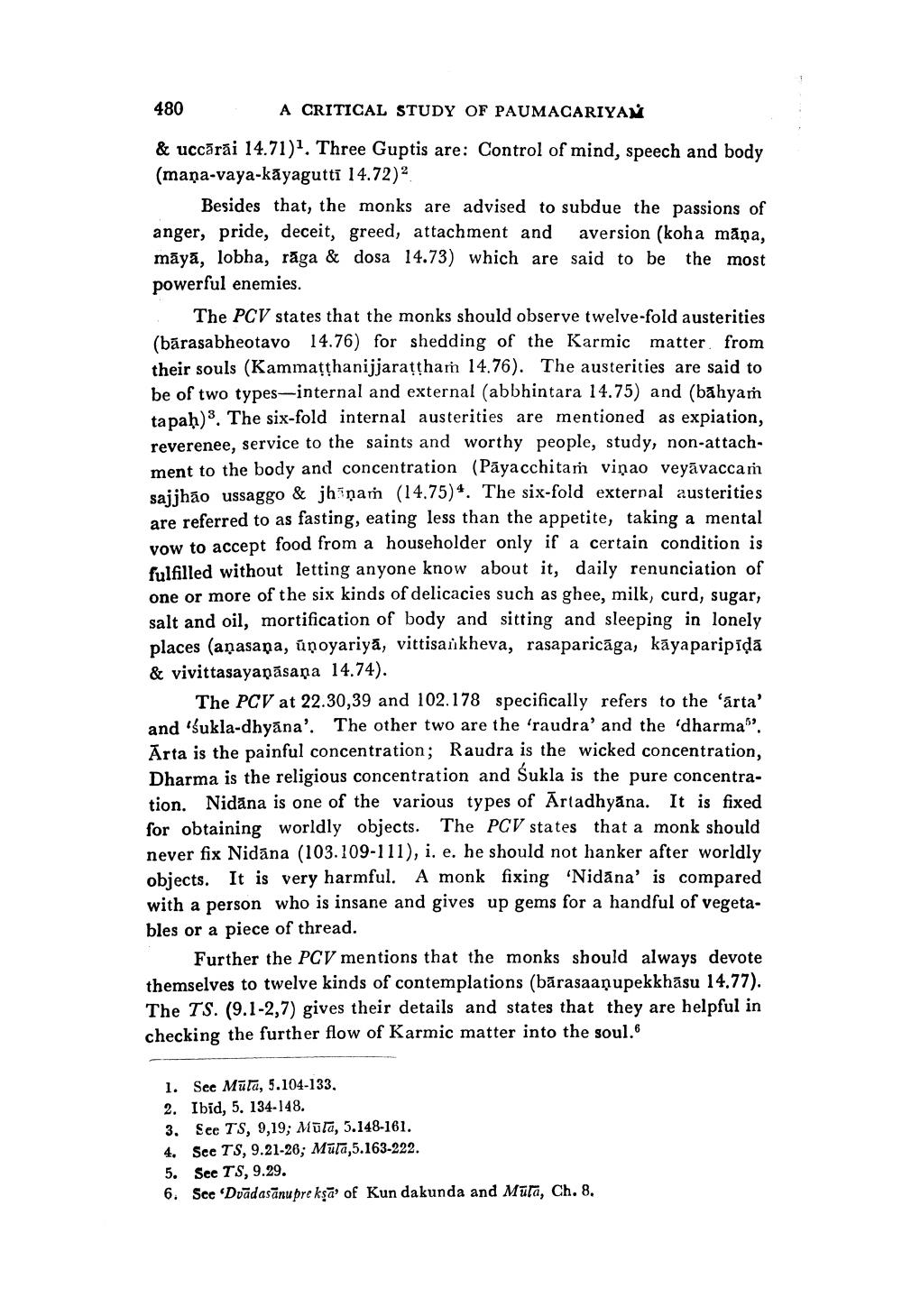________________
480
A CRITICAL STUDY OF PAUMACARIYAN & uccārai 14.71). Three Guptis are: Control of mind, speech and body (maņa-vaya-kāyagutti 14.72).
Besides that, the monks are advised to subdue the passions of anger, pride, deceit, greed, attachment and aversion (koha mõna, māyā, lobha, rāga & dosa 14.73) which are said to be the most powerful enemies.
The PCV states that the monks should observe twelve-fold austerities (bārasabheotavo 14.76) for shedding of the Karmic matter from their souls (Kammatthanijjarattham 14.76). The austerities are said to be of two types—internal and external (abbhintara 14.75) and (bāhyam tapah)3. The six-fold internal austerities are mentioned as expiation, reverenee, service to the saints and worthy people, study, non-attachment to the body and concentration (Pāyacchitam viņao veyāvaccam sajihão ussaggo & jhiņam (14.75). The six-fold external austerities are referred to as fasting, eating less than the appetite, taking a mental vow to accept food from a householder only if a certain condition is fulfilled without letting anyone know about it, daily renunciation of one or more of the six kinds of delicacies such as ghee, milk, curd, sugar, salt and oil, mortification of body and sitting and sleeping in lonely places (anasana, unoyariyā, vittisaukheva, rasaparicāga, kāyaparipida & vivittasayanāsaņa 14.74).
The PCV at 22.30,39 and 102.178 specifically refers to the 'árta' and 'Sukla-dhyāna'. The other two are the fraudra' and the dharma". Ārta is the painful concentration; Raudra is the wicked concentration, Dharma is the religious concentration and Sukla is the pure concentration. Nidāna is one of the various types of Artadhyāna. It is fixed for obtaining worldly objects. The PCV states that a monk should never fix Nidana (103.109-111), i. e. he should not hanker after worldly objects. It is very harmful. A monk fixing 'Nidāna' is compared with a person who is insane and gives up gems for a handful of vegetables or a piece of thread.
Further the PCV mentions that the monks should always devote themselves to twelve kinds of contemplations (bārasaaņupekkhāsu 14.77). The TS. (9.1-2,7) gives their details and states that they are helpful in checking the further flow of Karmic matter into the soul.6
1. See Mūta, 5.104-133, 2. Ibid, 5. 134-148. 3. See TS, 9,19; Mūta, 5.148-161. 4. See TS, 9.21-26; Müla,5.163-222. 5. See TS, 9.29. 6. See Dvādasānu pre kşa’ of Kun dakunda and Mura, Ch. 8.




